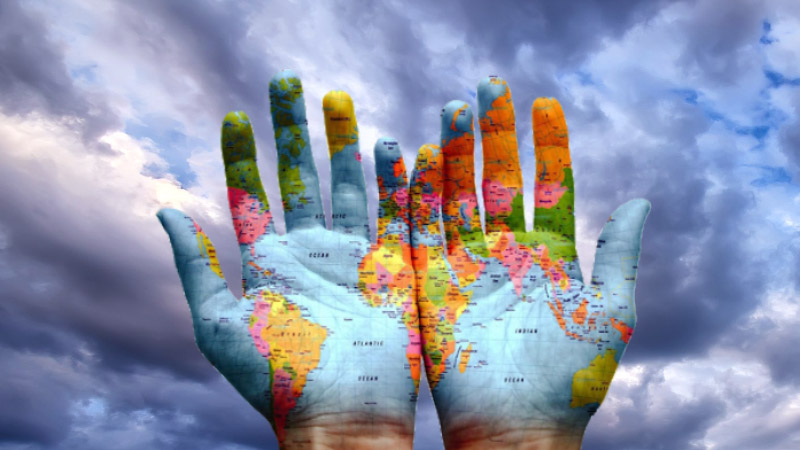Mubashir Nadeem
The International Day of Multilateralism and Diplomacy for Peace, observed every 24th of April, is a significant event that not only serves as a platform to underscore the importance of multilateralism, cooperation, and diplomacy in achieving global peace and security but also plays a crucial role in promoting global cooperation. The day is a call to action, raising awareness about the vital role played by multilateralism and diplomacy in resolving conflicts, promoting economic development, and safeguarding human rights.
Multilateralism denotes the process of multiple nations or international organizations working together towards common goals. It is the antithesis of unilateralism, which involves a single country or organization acting alone without seeking the cooperation of others. In today’s interconnected world, the value of multilateralism is immeasurable. No country can effectively address global challenges such as climate change, terrorism, and pandemics without seeking the support and cooperation of others. Thus, multilateralism is indispensable in promoting global cooperation and finding collective solutions to these challenges.
Diplomacy, on the other hand, is the art of negotiating and maintaining peaceful relations between nations. It encompasses building trust, resolving conflicts, and identifying common ground. Diplomacy is a powerful instrument for promoting peace, stability, and prosperity worldwide. Multilateral diplomacy, in particular, is critical for resolving conflicts and fostering cooperation among countries.
The International Day of Multilateralism and Diplomacy for Peace is a profound opportunity to contemplate the vital importance of these values. It serves as a reminder that global peace and security can only be achieved through multilateralism and diplomacy. The day underscores the necessity for nations to collaborate and work together to find solutions to global challenges.
Therefore, the International Day of Multilateralism and Diplomacy for Peace is a significant event that underscores the importance of multilateralism and diplomacy in achieving global peace and security. It reminds us of the imperative to work collaboratively to tackle global challenges and forge collective solutions. As individuals, we have a crucial role to play in supporting these values and advocating for a more peaceful and cooperative world. Our actions can make a difference in the global landscape, empowering us to contribute to the cause of peace.
Multilateralism is a form of cooperation between at least three states that involves the adherence to a common political project based on the respect of a shared system of norms and values. It is a method of cooperation and a form of organization of the international system that is based on principles such as consultation, inclusion, and solidarity. Multilateralism involves the development of rules that ensure sustainable and effective cooperation, guaranteeing all actors the same rights and obligations by applying themselves continuously and not on a case-by-case basis, depending on the issue handled.
The history of multilateralism can be traced back to the 20th century, with the establishment of the League of Nations after the First World War. However, it was the creation of the United Nations after the Second World War that truly institutionalized multilateralism as a key feature of the international system. The UN, through its Charter, defines the structure, mission, and functioning of the organization, establishing it as a ‘centre for harmonizing the actions of nations in the attainment of these common ends’ in order to ‘take effective collective measures for the prevention and removal of threats to the peace’, to ‘develop friendly relations among nations based on respect for the principle of equal rights and self-determination of peoples’ and to ‘achieve international cooperation’.
Multilateralism has not only been a theoretical concept but has also delivered tangible results. It has led to major advances, such as the eradication of smallpox in the health sector. Moreover, important international agreements have been concluded to limit arms control and to promote and strengthen human rights. The international cooperation within the multilateral framework of the United Nations is not just a theoretical construct but is saving lives every day.
While the United Nations has been the multilateral framework par excellence for more than 75 years, multilateral processes have diversified. One of the most visible developments in multilateral diplomacy is undoubtedly represented by the increase in the number of Member States, from 51 in 1945 to 193 today. In addition to this horizontal expansion, the multilateral framework has also expanded vertically, including new actors, such as non-governmental organizations (NGOs), private actors, and other international organizations. Today, more than 1,000 NGOs and international organizations have observer status at the United Nations.
Reinvigorating multilateralism is not just a necessity, but a pressing need in today’s world. With world leaders set to convene at the UN Summit of the Future this September, the urgency to reaffirm their dedication to peace, sustainable development, and protection of human rights is paramount. The commitment to multilateralism, diplomacy, and international peace and security was also reaffirmed by most world leaders in the General Debate in September 2018 and reinforced in the discussion during the High-level Dialogue on Renewing the Commitment to Multilateralism. This underscores the criticality of the situation and the need for immediate action.
On 12 December 2018, the General Assembly adopted the resolution, “International Day of Multilateralism and Diplomacy for Peace” (A/RES/73/127), by a recorded vote of 144 in favour to 2 against. The resolution invites all Member States, observers, and organizations of the United Nations to observe the International Day in an appropriate manner and to disseminate the advantages of multilateralism and diplomacy for peace, including through educational and public awareness-raising activities.
Pl, subscribe to the YouTube channel of republicpolicy.com

















































